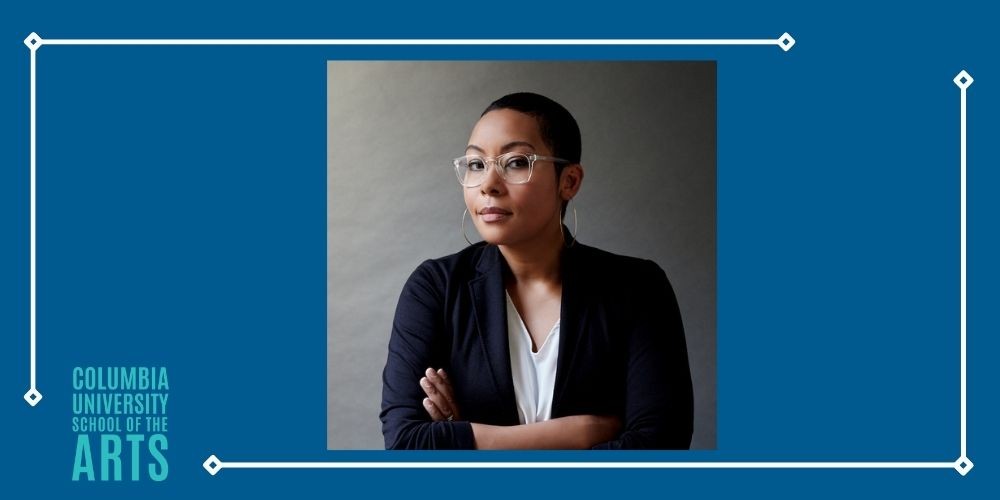Associate Professor Racquel Gates Pens Article for Film Quarterly’s Spring 2023 Issue
Associate Professor Racquel Gates is featured in the latest issue from Film Quarterly.
Edited by Michael Boyce Gillespie, Film Quarterly’s spring issue is titled, Black Infinite – New Directions in Black Film and Media.
“The work of this dossier is grounded in a devotion to the study of Black film and media,” Gillespie said. “In total, it represents the emergence of new frequencies, priorities, and methodologies attuned to the continued evolution of the field, which, in the last twenty years, has seen the most sustained and rigorous proliferation of scholarship ever.”
Among the dossier’s featured pieces is Gates’ latest essay, “Baby Mine: Dumbo and Black Resonance.” In this piece, Gates revisits the 1941 Disney classic Dumbo. Situating her analysis in the act of viewing the film with her sons during the 2020 George Floyd protests, Gates uses her personal experience to reframe the film with a new emphasis on Dumbo’s Black resonance, specifically highlighting some of the film’s undertheorized historical and performative elements. While taking into account Dumbo’s uncomfortable incorporation of minstrelsy and Disney’s larger problems of racial representation, Gates pushes for a complex reading of the film that situates Blackness at the core of its affective connection.
“The idea for this piece really originated with me watching Dumbo with my kids and husband in the summer of 2020,” Gates said. “It was the peak of the pandemic, and everything was on lockdown. The George Floyd protests were happening literally right outside of my window. My kids were at home because there was no childcare. And we were doing our regular Saturday movie nights, including Dumbo. At the same time, Disney was putting up these content warnings, including one for Dumbo about what they found to be racist or offensive content. As a film scholar, I was getting asked by different companies to weigh in on these concerns about racial representation. There were just a lot of things that came together on this particular night, and it eventually became the piece that's now published.”
The piece garnered praise from Gillespie, who penned the introduction for the spring 2023 issue: “Gates offers a reading of Dumbo as Black allegory that is very much embedded in Black motherhood and the ever-concussive historical present. With care and critical acumen, Gates poignantly reframes the film in a way more generative than any previously afforded.”
The essay also marks an important shift in Gates' approach to her work.
“My second book, which is under contract with Duke University Press, is about the aesthetics of classic Hollywood and Blackness—thinking through how those things are connected and sort of construct each other,” Gates said. “When I received the grant from the Academy of Motion Picture Arts and Sciences to work on the book, that was what I had been planning to work on. Then 2020 happened, and I hit a point where I sent an email to my editor and said, ‘How can I possibly write whatever book I thought I was going to write before? Because I'm not the same person, and the world is not the same anymore.’ I wanted to go more personal. This piece ["Baby Mine"] is sort of the test case for that, where I’m writing about film and media in a much more personal, more intimate register.”
Racquel Gates received her PhD from Northwestern University’s department of Screen Cultures. She also holds an MA in Humanities from the University of Chicago and a BS in Foreign Service from Georgetown University. Her research focuses on Blackness and popular culture, with special attention to discourses of taste and quality. She is the author of Double Negative: The Black Image and Popular Culture (Duke, 2018), where she argues that some of the most disreputable representations in Black popular culture can strategically pose questions about Blackness, Black culture, and American society. In 2020, she was named an Academy Film Scholar by the Academy of Motion Picture Arts and Sciences. She used the grant to support work on her next book, Hollywood Style and the Invention of Blackness. Committed to bringing together film studies in an academic context and film appreciation in more popular settings, Gates maintains a robust public engagement. Her work appears in both scholarly and popular publications, some of which include The New York Times, The Los Angeles Review of Books, Film Quarterly, Television & New Media, as well as other journals and collections. She is also a regular contributor to numerous podcasts, television programs, and recorded film interviews.
